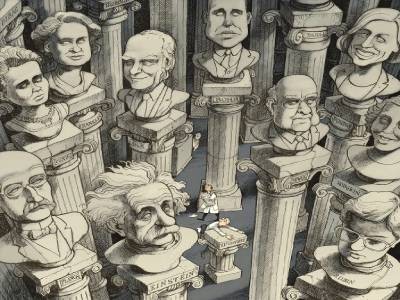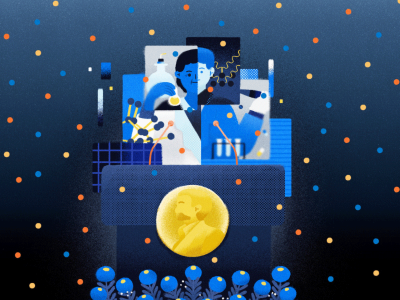When Swedish inventor Alfred Nobel created his prize, which has been bestowed since 1901, he knew no human could run faster than a lion or swim farther than a dolphin. Our dominance as a species arose not because we were the strongest or the fastest, but because of our ingenuity — our ability to imagine, design and build.
Are groundbreaking science discoveries becoming harder to find?
Today, human ingenuity is expressed through the machines we create. Almost every big scientific breakthrough of the past 50 years, from detecting gravitational waves to sequencing the human genome and mapping the structure of proteins with artificial intelligence (AI) tools, has depended on a machine that could sense more, measure more precisely or calculate faster than any human can.
Yet, prestigious scientific prizes still frame achievements mainly as a human endeavour. Nobel prizes have repeatedly gone to people whose discoveries were made possible only by extraordinary technologies. But the machines and the communities that built them are rarely acknowledged as co-creators.
If our highest honours are to reflect the reality of modern discovery, the machines that enabled them need to be recognized. This could be done through existing awards, by creating a new category or by setting up fresh prizes.
Machines are not just instruments in service of science — they are science. Consider the Laser Interferometer Gravitational-wave Observatory (LIGO) experiment. Its detection of gravitational waves in 2015 was rewarded with the Nobel Prize in Physics in 2017, just two years later.
Although Albert Einstein predicted the existence of these waves 100 years earlier using just his imagination, paper and a pen, their observation hinged on an engineering feat that could be achieved only in the past few decades: two tunnels, each four kilometres long, perfectly perpendicular, under ultrahigh vacuum, equipped with laser beams capable of detecting length variations with a precision of 1/10,000th the width of a proton. Similarly, the James Webb Space Telescope (JWST) is transforming our view of the Universe. The Large Hadron Collider’s construction was as much a breakthrough as the Higgs boson that the facility later detected. Cryo-electron microscopy has revolutionized biology.
How to win a Nobel prize: what kind of scientist scoops medals?
Nobel season is when the world looks at science. If we portray breakthroughs as purely human triumphs, we reinforce an outdated view in which machines are just tools.
This omission matters. Prizes don’t just honour the past; they shape the future. Winning one drives more papers in that topic. Although awards are concentrated in a small network of scientific institutions, they can interlock disciplines by creating channels through which knowledge can spread. Conferring credibility and status on people, ideas and disciplines signals to the public what counts as progress.
And the stakes are rising. AI is accelerating drug discovery and protein-folding simulations, and winning International Mathematical Olympiad gold medals. The machines we build don’t just extend our reach — they reshape us, too. When Google DeepMind’s AlphaGo AI defeated the world’s best players of the board game Go, it didn’t just end the contest: it transformed the game itself, with human champions now adopting strategies no one had imagined before. Science might be experiencing a similar shift. In a research environment that increasingly depends on machines, the scientists who work most effectively with them might be the ones who set the pace for discovery.
It’s time for prizes to explicitly honour human–machine partnerships. By this, I mean scientific achievements for which the core insight or discovery was possible only because of a purpose-built machine that extended human capabilities in a decisive way. These might range from large-scale experimental set-ups and advanced sensors to powerful algorithms and integrated systems that make the biggest questions answerable by scientific methods.




